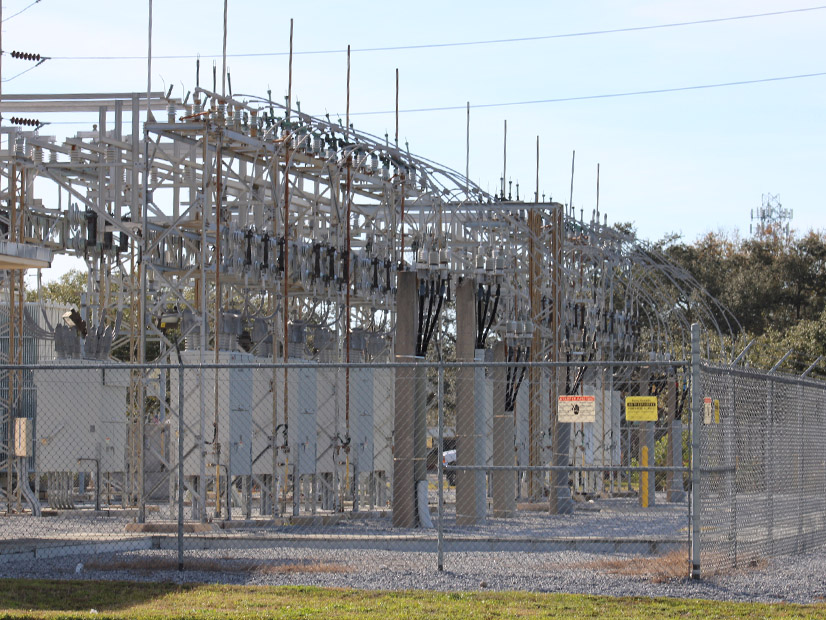
FERC on Friday approved nearly $250,000 in penalties leveled by SERC Reliability and the Texas Reliability Entity in separate settlements against Duke Energy and Bryan Texas Utilities (BTU) for violations of NERC reliability standards (NP22-27).
NERC filed the settlements with the commission June 30 in its monthly spreadsheet Notice of Penalty, along with a separate NOP concerning an unnamed entity’s violation of the Critical Infrastructure Protection (CIP) standards; details of this NOP were not disclosed in accordance with NERC and FERC’s policy treating CIP violations as critical energy/electric infrastructure information. (See FERC, NERC to End CIP Violation Disclosures.) In its Friday filing, the commission said it would not further review the settlements, leaving the penalties intact.
Ratings Issues Across Duke Companies
SERC’s settlement with Duke involves FAC-009-1 (Establish and communicate facility ratings) and its successor FAC-008-3 (Facility ratings), which replaced the earlier standard in 2012. According to the NOP, Duke and its Energy Carolinas (DEC) and Florida (DEF) subsidiaries — had multiple instances of “facility ratings that were [not] consistent with their respective facility ratings methodology [FRM],” as called for in FAC-009-1. The violations began in 2007, when the original standard first took effect, and had not been fully resolved at the time of the filing.
The regional entity first learned of the violation in August 2018, when DEC submitted a self-report that DEF had discovered three cases of inconsistent facility ratings at a single 500-kV substation. (DEC submitted the report as part of an existing agreement with SERC.) DEF found that three 500-kV line segments had been recorded in the facility ratings database as bundled line conductors rather than single; as a result, the segments were not documented as the most limiting element in the substation.
During preparations for a subsequent audit by SERC, DEC and Duke discovered and reported additional instances of noncompliance; in a walk-down during the audit, SERC found more ratings that were inconsistent with the FRM. SERC then requested all Duke companies conduct extent-of-condition inspections, which returned as of November 2021:
- DEC: 65 instances of noncompliance at 326 facilities;
- DEF: 26 instances at 96 facilities; and
- Duke: 69 instances at 725 facilities.
SERC identified the root cause of the violations as “the presence of vertical organizational silos,” primarily originating from Duke’s merger with Cinergy in 2006. Following the merger all of Duke’s companies had separate FRMs; while Duke and DEC later merged their FRMs, DEF and Duke Energy Progress still maintained their own facility ratings programs. This contributed to “a lack of uniformity and coordination over the years [and] a lack of awareness of the facility ratings program challenges” across Duke’s companies.
Duke’s mitigation activities include committing to form teams for each region to define walk-down processes and timelines and complete field walk-downs for all bulk electric system transmission substations at all Duke companies, reporting walk-down results and correcting any identified ratings discrepancies. The companies have also promised to conduct training for all relevant personnel and “assign additional staff to support FRM-related processes.”
Because part of the violations occurred in ReliabilityFirst’s footprint, SERC will share the $210,000 penalty with its fellow RE; based on the relative net energy for load of each region, RF will receive $85,260.
BTU also Settles over Ratings
Texas RE’s $39,000 settlement with BTU also stems from violations of FAC-009-1 and FAC-008-3, along with FAC-008-5. The noncompliance was first detected by Texas RE during a compliance audit, with a subsequent review by BTU discovering nine facilities in all where facility ratings were not consistent with the FRM.
The RE attributed the violation to “overreliance on stale field verifications,” noting also that BTU had not done a good enough job communicating with neighboring entities on the equipment ratings for their jointly owned facilities. Instead of using old field data, Texas RE said BTU could have proactively checked and verified facility ratings “when the opportunity was available,” for example during construction and maintenance.
Texas RE assessed the violations as a moderate risk to the reliability of the bulk power system, noting that no harm is known to have occurred as a result. However, it also said the violations were aggravated by their length, having begun in 2007 and continued until 2021 when BTU recalculated the inaccurate ratings and reported the results to ERCOT.

